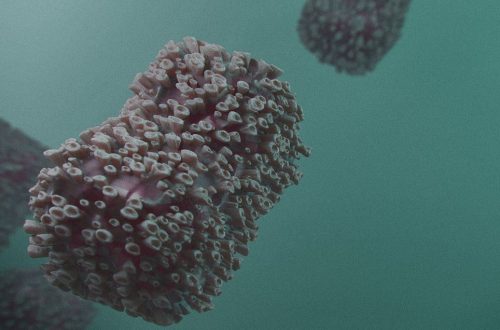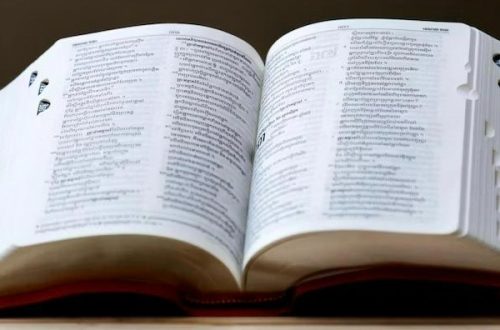 I’ve done a series of posts on New Orleans and the aftermath of Hurricane Katrina. Lately, I’ve been observing how the national media coverage has been turning attention away from the dysfunctionality of the federal response to the dysfunctionality of New Orleans itself.
I’ve done a series of posts on New Orleans and the aftermath of Hurricane Katrina. Lately, I’ve been observing how the national media coverage has been turning attention away from the dysfunctionality of the federal response to the dysfunctionality of New Orleans itself.
According to the New York Times, there have already been 18 murders in New Orleans since the beginning of the New Year, a situation which has been exacerbated by the collapse of the city’s criminal justice system.
There were 161 homicides in this city last year, and there have been 18 so far this year, making New Orleans by most measures the nation’s per capita murder capital, given its sharply reduced population. Many of the victims and the suspects are teenagers. About two-thirds of the deaths have gone unsolved: the killers, in many cases, continue to walk the streets and are likely to kill again, the police say.
Other cities have plenty of murders. But only in New Orleans has there been the uniquely poisoned set of circumstances that has led to this city’s position at the top of the homicide charts. Every phase of the killing cycle here unfolds under the dark star of dysfunction: the murderers’ brutalized childhoods, the often ineffectual police intervention, a dulled community response, and a tense relationship between the police and prosecutors that lets many cases slip through the cracks.
Hurricane Katrina’s devastation loosened the fragile social restraints even further, making the city perhaps more dangerous than ever.
The storm also pushed a teetering criminal justice system over the edge. The evidence in hundreds of criminal cases was lost, and the flood destroyed the police crime lab, which has not been rebuilt. Often, drugs cannot be tested at other locations before the deadline for bringing charges. Yet the police are trying to stop the violence by arresting more drug users and street dealers, many of whom are quickly released, spinning the jail door faster than ever and fueling the carnage.
Read the rest of “In New Orleans, Dysfunction Fuels Cycle of Killing” in The New York Times.
See also: “What’s stopping the Big Easy’s big comeback?†– NBC News




2 Comments
Joe Kennedy
Any suggestions, Denny? God knows we can use them.
What are some things we need here?
1. African-American church planters, primarily raised up from among the indigenous population (which means some are going to be Creole).
2. Murders up, hospitals overflowing, doctors quitting: we need more medical personnel, period.
3. Humble leadership: from the top to the bottom. A clean slate. Our DA, upon election, fired almost all the white employees. Now we know he’s a racist and we don’t have anybody working the court systems, so half the violent criminals get turned back to the streets (to do what? more violent crime).
4. Trash pickup. If you’ve read The Tipping Point by Malcolm Gladwell, you might remember him referring to the Broken Windows Theory. We need to clean this city up faster. Between the red tape and sentimental fools trying to keep uninhabitable buildings from being demolished, we can’t seem to get the place looking humane. It’s like the city is a huge dump. Moreover, it’s helping the rodent and pest population explode, which leads to…
5. Rodent and pest control. Not enough is done in that arena. Between the rats and the Katrina-lung (black mold), more people are headed to the hospitals. I still predict a small scale epidemic of something in the next year or so. Hey that leads us back to number 2.
6. Likewise, most of us (even those of us who evacuated to Mobile, Alabama for 9 months and didn’t lose much at all) are on edge 90% of the time. We need counselors. Free counselors, because FEMA doesn’t pay for it, and is barely paying for rent. Speaking of rent, one lady’s landlord won’t accept money directly from FEMA (it’s like making it gov’t housing then) and so she’s about to get kicked out. So if the hurricane didn’t mess us up, the stress of trying to hold a job, rebuild our homes, and survive has and will mess us up. Send counselors.
7. Oh, and did I mention the city was broke before Katrina? So broke they were wondering how to finish out the fiscal year here in 2005. And that was in June. There was talk of a teacher’s strike, if I remember correctly. The firemen did, I think, strike. All before the flood.
So I guess, Denny, the thing is, we know there’s a lot wrong here. And I’m glad someone outside this city is taking the time to remember that it’s still really, really crappy down here. But there’s more to it than just the murders. And yes, the seminary is doing its best. So are many of the churches. But our best isn’t enough. One or two grief counseling classes isn’t enough. We’re all white and most of us aren’t from here. So why would they want our help?
Don
Denny, One thing that has worked in NJ. Combined Police action. Not a buzz name. In Camden NJ and Irvington NJ local police worked with State Troopers to cut the Homicide rate. Much like what NY City did with tough stop and search programs to get guns off the streets. Programs to turn in weapons for cash do work. I don’t understand the city never been there but seems to me there is a monster problem with police and DA’s office. Maybe bring in State Police with a State appointed DA to handle arrests made by State Police. The big problem to me is one of complete lack of leadership from the Mayor and the Governor. They are lightweights and finger pointers. A US senator { Mary Landriue LA } last week stated that it would have been better if the levees had been blown up by terrorists. That is a huge problem from a lack of leadership stand point. From a law enforcement view tough policing will cut down the murder rate.